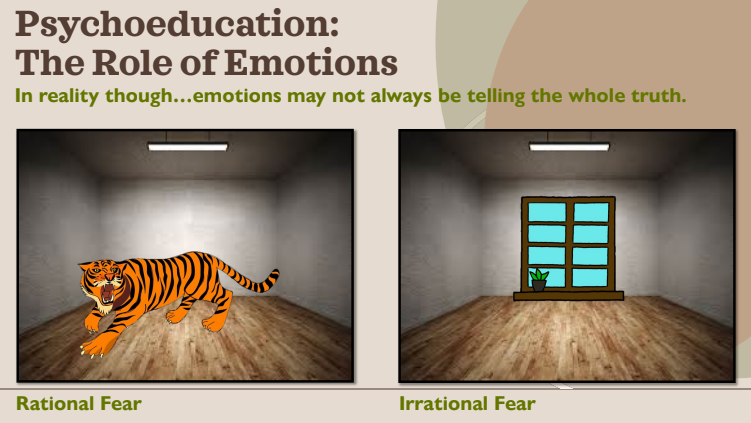Feelings are a vital component of our lives, shaping our ideas, behaviors, and overall well-being. Nonetheless, mastering the art of controlling emotions can often feel like a formidable task. In a society full of tension and unpredictability, the ability to control our emotions is essential not only for our mental health but also for our personal and professional success. How we respond to emotional cues can determine the quality of our connections, the quality of our decision-making, and our ability to cope in the face of challenges.
Understanding the concept of emotional regulation involves delving into the mechanisms behind emotional regulation and identifying effective methods that enable us to navigate life's challenges with composure. Whether you are seeking to stay calm under pressure, manage anger healthily, or improve your emotional responses in difficult conversations, this process will equip you with tested strategies and knowledge. From mindfulness techniques to recognizing triggers, the journey to controlling your feelings starts here, paving the way for a balanced and satisfying life.
Proven Methods for Emotional Control
Cultivating emotional control is important for managing life’s challenges with grace and resilience. One effective strategy is the practice of awareness, which encourages individuals to be mindful and conscious of their emotions non-judgmentally. Techniques such as deep breathing and meditation can help in grounding yourself during moments of stress, allowing you to respond mindfully rather than react without thought. Incorporating mindfulness practices into your daily routine can substantially enhance your emotional regulation skills.
Another key approach involves recognizing and managing emotional triggers. Pinpointing specific events or interactions that trigger intense feelings is crucial for emotional mastery. Keeping a log to record these triggers can aid illuminate patterns and assist you in creating coping strategies. By comprehending the underlying causes of your emotional responses, you can strive for respond in a more composed manner during challenging situations, ultimately encouraging positive conversations and interactions.
Building self-awareness is also essential for enhancing emotional control. This entails being conscious of your emotional state and understanding how it affects your behavior and decision-making. Engaging in self-reflective practices, such as regular self-assessment or requesting feedback from reliable individuals, can boost your understanding of emotional patterns. By aligning your responses with your principles and goals, you can foster a sense of control that enables you in both personal and professional settings.
Awareness and Introspection Techniques
Mindfulness is a potent tool for enhancing emotional control. It encourages individuals to focus on the here and now, allowing for a clearer understanding of one's ideas and emotions without criticism. Practicing awareness can help you recognize emotional triggers as they arise, fostering a greater sense of awareness. Simple techniques such as mindful breathing or body scans can ground you in the present, making it easier to maintain emotional equilibrium during stressful situations.
Introspection plays a crucial role in emotional regulation. By understanding your own feelings and the causes behind them, you can develop more effective methods to control your reactions. Keeping a log to reflect on daily events and emotional responses can enhance this self-awareness. Over time, this practice helps illuminate patterns in your emotional landscape, enabling you to anticipate and modify your reactions more effectively in challenging circumstances.
Incorporating both awareness and introspection into your daily routine deepens your ability to stay composed under pressure. Have a peek here like meditation not only improve emotion management but also build resilience, allowing you to face conflicts and opposition with composure. By cultivating these abilities, you enable yourself to navigate life's ups and downs with confidence, fostering healthier relationships and enabling more effective choices.
Emotionality Management in Partnerships and Leadership
Emotional control is a foundation for building positive bonds, both in personal life and in a professional setting. In relationships, the capability to regulate feelings promotes better dialogue, minimizes tension, and improves empathy between people. When individuals can articulate their feelings without allowing them to spiral into frustration or discontent, they create an setting of trust and security. This emotional awareness allows for more profound connections and the capacity to tackle obstacles more successfully, in the end reinforcing the bond.

In management, managing emotions becomes a critical skill that differentiates effective managers from the others. Leaders who can maintain equanimity under stress inspire faith among their staff. They demonstrate emotional regulation and create a environment of strength within the organization. By managing their emotional reactions, guides can deliver positive advice, deliver effective determinations, and steer their staff through challenges with clarity and grace. This skill to stay calm and attuned not only enhances their impact but also cultivates loyalty and enthusiasm among team members.
Additionally, emotional regulation has a far-reaching influence in the workplace. As managers exhibit self-awareness and emotional regulation, they inspire their members to cultivate these similar skills. This shared understanding promotes teamwork and alleviates strain. When staff learn to interact well and regulate their feelings, they are better able to resolve issues, adapt to evolving circumstances, and finally achieve their targets. The ability to regulate feelings in management not only improves personal effectiveness but also enhances the entire performance and health of the whole team.
